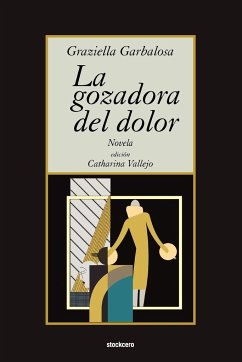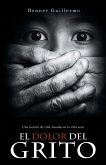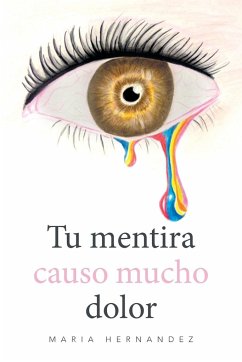Because of her social and literary avant-garde activities during the first thirty years of the twentieth century, Graziella Garbalosa (La Habana, 1896-1977) -actress, singer, prolific poet and prose-writer- is an extraordinary figure in the Cuban artistic world. In spite of this strong presence in that nation's cultural environment, but perhaps because of her continuous travels, there are few references to her in Cuban literary histories. Her works show a great awareness of narrative experiments (very much of the avant-garde period and notable in a woman writer), in which she explores the textualization -and hence the appropriation- of the female body. Her writing is all the more daring when placed in the context of her times, when 'honorable' women were not considered to have erotic feelings. In 1920, married and with a daughter, she published a volume of poetry "La juguetería de amor". Her first novel, "La gozadora del dolor" (Havana, 1922), issued when she had separated from her husband, corresponds to the melodramas typical of the era: strongly emotional, with conflicting moral codes and an intense and exaggerated plot. The work exhibits a rhetoric of extremes, and there are scenes of graphic sensuality, as well as powerful realism, which together act to establish the author's thesis on erotic pleasure as a material act which leads to pain, horror and, finally, the ultimate tragedy. Shortly after the publication of Garbalosa's second novel, "El relicario. Novela de costumbres cubanas" in 1923, her involvement in political protest force her into exile in Mexico, where she publishes another novel, "Una mujer que sabe mirar", in 1927. Upon her return to Cuba in 1928 she publishes "Más arriba está el sol". From then on she divides her residence between Cuba and Mexico, presents her scenic recitals through the United States and Europe (including Holland, Belgium, France and Spain), and continues to publish, mainly in Mexico: various literary volumes of stories and theater, such as the beautifully illustrated "Narkis. Diez leyendas y cuentos, antiguos y modernos en versos clásicos y libres" (1948), "Los momentos de la Reina Vida, tragicomedia en tres actos y un prólogo" (1955), and "Charlas en el penthouse" (1955), among others. During her lifetime she publishes articles, poems and chronicles on a wide variety of cultural and political topics in major newspapers and magazines in Mexico and Cuba ("El Diario de la Marina, Bohemia", "Social, "Carteles"), and maintains friendship with many important artistic and literary figures of her times, such as Ernest Hemingway, Juan Antonio Mella, Rubén Martínez Villena, Diego Rivera, Gerardo Murillo, Tina Modotti and José Carlos Mariátegui. After the 1959 revolution in Cuba, she maintained her residence there until her death in 1977. This edition of "La gozadora del dolor", with an introductory study and notes by Catharina Vallejo, constitutes excellent material for the study of Spanish-American narrative of the early twentieth century; it should also be of interest to those who study the evolution of the status of women in that time-period in Spanish-speaking areas. Through its portrait of the artistic environment of the Cuban avant-garde, and its mention of numerous Western European writers -both male and female- the novel also relates to studies in comparative literature. Its connection to the erotic-naturalist novel of Spain in the early twentieth century -and especially given the relationship between Cuba and the metropolis at that time- also situates it in the field of transatlantic studies.
Hinweis: Dieser Artikel kann nur an eine deutsche Lieferadresse ausgeliefert werden.
Hinweis: Dieser Artikel kann nur an eine deutsche Lieferadresse ausgeliefert werden.








